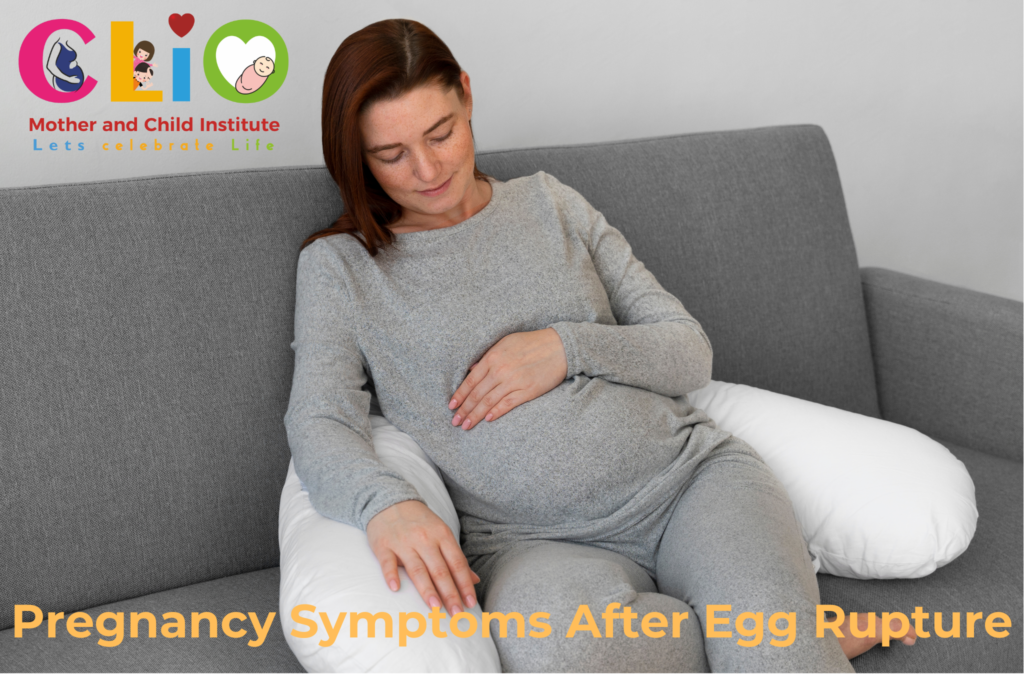Pregnancy is a unique and significant period in a woman’s life, and it’s crucial to comprehend the changes that accompany it. For numerous women, one of the initial indications of pregnancy is the release of the egg. In this article, we will delve into the process of egg release and the subsequent symptoms. Additionally, we will address typical factors that can influence the timing of these symptoms and offer guidance on how to handle early pregnancy signs.
What Are the Chances of Pregnancy After Ovulation?
During ovulation, a fully developed egg is discharged from the ovary and begins its journey through the fallopian tube towards the uterus. As the egg ruptures, a minor quantity of fluid is released into the pelvic area. This fluid can lead to mild sensations of discomfort or cramping. It’s crucial to understand that experiencing cramps or minor discomfort during ovulation does not necessarily imply pregnancy.
Once the egg is released, it remains viable for approximately 12-24 hours. If it goes unfertilized during this time, it will break down and be absorbed by the body. However, if sperm is present in the fallopian tube during this period, it can successfully fertilize the egg, leading to a potential pregnancy.
Additionally, some women may experience other signs of ovulation, such as changes in cervical mucus or a slight elevation in body temperature. These can serve as valuable cues for monitoring ovulation and predicting the most fertile days for conception.
How Does Fertilization Occur After Egg Rupture?
Fertilization takes place when sperm are in the fallopian tube during ovulation. Generally, this process happens within 24 hours of ovulation. After fertilization, the developing embryo starts dividing and embarks on a voyage towards the uterus. This journey from the fallopian tube to the uterus may span up to six days.
As the fertilized egg makes its way to the uterus, it experiences multiple cell divisions, culminating in the creation of a cluster of cells known as a blastocyst. Subsequently, this blastocyst attaches itself to the uterine lining, where it proceeds to mature and evolve into a developing fetus.
It’s important to note that not all fertilized eggs achieve successful implantation in the uterus. There are instances when the fertilized egg implants in the fallopian tube, resulting in a condition referred to as an ectopic pregnancy. Ectopic pregnancies can pose serious risks and necessitate immediate medical intervention.
Common Signs of Pregnancy After Egg Rupture
A missed menstrual period is often one of the initial indications of pregnancy, although some women may experience symptoms before missing their period. The most prevalent pregnancy symptoms following egg rupture comprise:
- Spotting or light bleeding
- Increased breast tenderness and swelling
- Episodes of nausea and vomiting
- Sensations of fatigue or increased tiredness
- Frequent urges to urinate
Beyond the usual pregnancy indicators post-egg rupture, there are additional symptoms that some women might encounter. These encompass:
- Cramps or abdominal discomfort
- Change in appetite or specific food cravings
- Mood swings or feelings of irritability
- Occasional headaches or dizziness
- Instances of constipation or diarrhea
It’s crucial to acknowledge that not all women will undergo identical symptoms, and there are those who might not experience any symptoms at all. If you suspect you might be pregnant, it’s advisable to take a pregnancy test and seek guidance from your healthcare provider.
How Quickly Can Pregnancy Symptoms Occur After Egg Rupture?
The onset of pregnancy symptoms following egg rupture can differ from one person to another. For some women, symptoms may manifest as early as one week after fertilization, whereas others might not notice any symptoms until several weeks into their pregnancy. It’s crucial to emphasize that not all women will experience symptoms during this period.
Fatigue, nausea, breast tenderness, and increased urination are among the prevalent early pregnancy symptoms. These symptoms result from hormonal changes within the body as it prepares itself for pregnancy. Nevertheless, it’s crucial to bear in mind that these symptoms can also be attributed to other factors, including stress or illnesses.
When Is the Right Time to Conduct a Pregnancy Test After Egg Rupture?
If you suspect you might be pregnant, taking a pregnancy test can provide confirmation, but it’s essential to wait until after you’ve missed your menstrual period. Conducting a pregnancy test too early can yield a false negative result. If you’re unsure about the optimal timing for the test, it’s advisable to consult a healthcare professional.
It’s worth noting that the timing of egg rupture, or ovulation, can vary among women. In general, ovulation occurs approximately 14 days before the commencement of your next menstrual period. For instance, if you have a regular 28-day menstrual cycle, ovulation may take place on day 14. However, if your menstrual cycle is longer or shorter, ovulation might occur sooner or later. To determine the most suitable time for a pregnancy test, it’s recommended to monitor your menstrual cycle and utilize ovulation predictor kits.
Strategies for Managing Early Pregnancy Symptoms After Egg Rupture
Addressing early pregnancy symptoms can pose a challenge, but there are several strategies to alleviate discomfort. These strategies encompass:
- Prioritizing ample rest and sleep.
- Consuming small, frequent meals throughout the day.
- Staying well-hydrated.
- Steering clear of potential triggers, such as strong odors or motion-related discomfort.
- Participating in gentle physical activities like yoga or walking.
It’s essential to acknowledge that every pregnancy is unique, and what may be effective for one person might not apply to another. If you are grappling with severe or persistent symptoms, it is imperative to have a conversation with your healthcare provider. They can offer further guidance and support to help you manage your symptoms and promote a healthy pregnancy.


